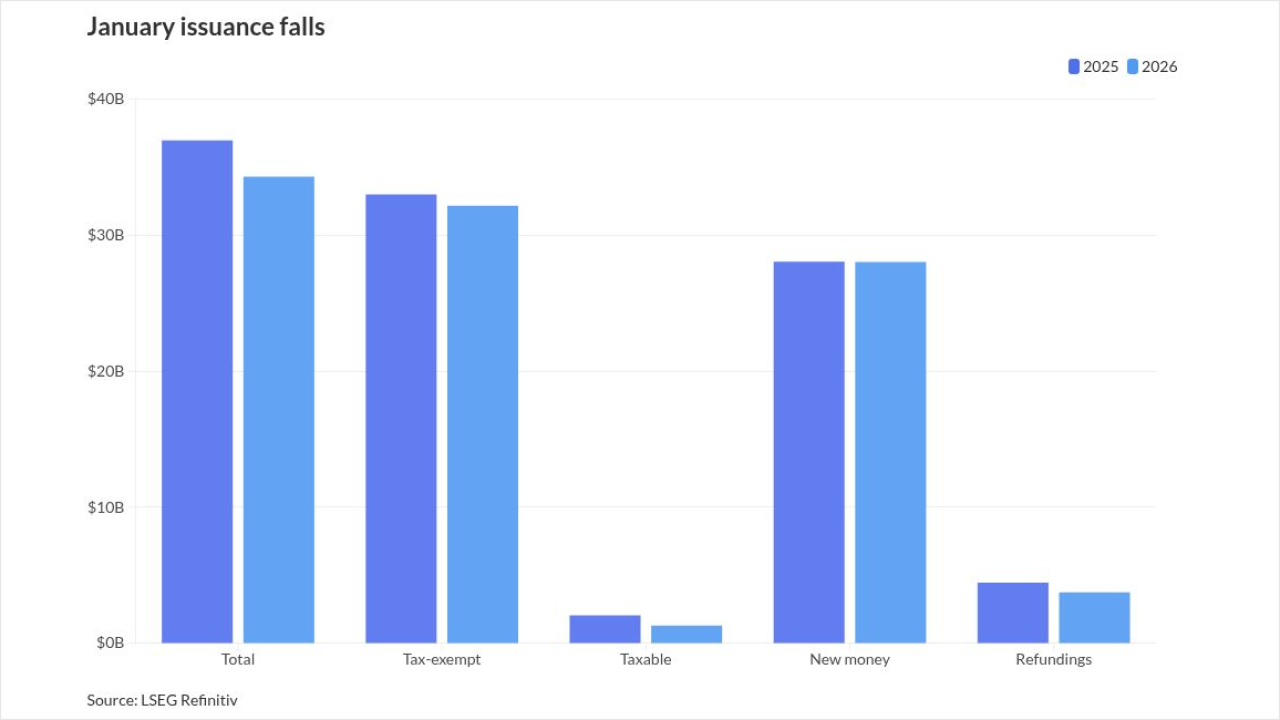CHICAGO — A month after voters overturned Michigan's controversial emergency management law, lawmakers last week passed new legislation that restores many of the state's powers over distressed local governments and features a new focus on Chapter 9 bankruptcy as an early option.
If signed into law by Gov. Rick Snyder as expected, the legislation will take effect in late March.
The law comes as Detroit teeters on the edge of insolvency, with the municipal finance world watching to see if it will be the largest American city to file for Chapter 9.
But despite the new law's emphasis on bankruptcy as an option to deal with a financial emergency, it will likely remain a last resort for Detroit and many other local governments struggling across the state, experts said.
Michigan has never had a local government declare bankruptcy, despite a recession that started in 2000 and battered cities and school districts across the state.
Under the state's old law for distressed governments, only an emergency manager could declare bankruptcy, with the governor's permission.
The new law moves the option up earlier in the process, giving the choice to the local government, with the governor's final approval. An emergency manager still has the power to ask for bankruptcy.
"Chapter 9 is on the table now," Richard Ciccarone, chief research officer at McDonnell Investment Management. "The chance of bankruptcy in Michigan today is greater than under the old law. But the state is trying to do what it can to keep Detroit and others out of bankruptcy."
Treasury spokesman Terry Stanton said in an email the state considers Chapter 9 as the "last option" but "one that cannot be dismissed."
Voters in November rejected the state's former emergency management law, Public Act 4, amid criticism that it gave the state too much control over troubled local governments.
After the election, legislators, the treasurer's office, and Snyder quickly introduced new a bill that would restore key powers while giving local governments more involvement at various points in the process. The Legislature passed Senate Bill 865 last week in a busy lame-duck session that was dominated by controversial right-to-work legislation.
The new emergency management law, which is called the Local Government and School District Fiscal Responsibility Act, restores powers that proponents consider key to resolving financial emergencies, particularly the ability to terminate or amend labor contracts. The new law exempts a local government from collective bargaining for five years after a financial emergency has been declared.
Under the new law, if a local unit is found to be in a state of financial emergency, the governing body has seven days to select one of four options: It can opt for a consent agreement with the state, an emergency manager, a so-called neutral evaluation process similar to California's Assembly Bill 506 process, or Chapter 9, with the governor's consent.
"Everybody is talking about the Chapter 9 provision, and if all else fails, that's an option," Louis "Bud" Schimmel, a Michigan public finance veteran who is currently emergency manager of the troubled city of Pontiac. "But I've taken what is probably the worst situation in Michigan, or darn close to it, and I've been able to pretty well straighten it around with an EM," he said. "This new act provides the tools you need, so I don't see bankruptcy happening really quick."
The law gives the local governing body and mayor the ability to vote out an emergency manager after one year and replace the manager with a mediator.
It expands to 18 the number of triggers for a state review and broadens to 30 the actions that an EM may take. Sixteen of the actions are new, according to an analysis of the bill by the independent House Fiscal Agency. It also outlines a specific exit strategy for governments emerging from state oversight.
The new law is similar to recent efforts by other states to manage troubled local governments, said Manny Grillo, chair of the financial restructuring practice at law firm Goodwin Procter LLP.
"Everyone is trying to figure out a way to either limit or clarify the rights of municipalities to file, because clearly it appears to some extent it's going to be inevitable," Grillo said.
If a local government chooses a neutral evaluation process, the evaluator must have either served as a U.S. bankruptcy judge or have Chapter 9 experience.
The evaluator will try to work with the parties to solve the problems, informing the local government of the "limited authority" of the Chapter 9 process, such as the inability to interfere with government property or 'cram down' debt payments, according to the fiscal analysis.
If the evaluator is not able to settle the differences — as has been the case in California — the local governing body would be required to adopt a resolution recommending a Chapter 9 filing.
"Sometimes you need an 'or else,' to get something done," said James Spiotto, a bankruptcy attorney at Chapman and Cutler LLP, referring to the requirement that a local government move toward Chapter 9 if the evaluation process fails. "You need some teeth in it."
For investors, the state's history of avoiding local bankruptcies and the strong state oversight in the new law are positive.
"From the investment perspective, there is a lot of comfort knowing that even though Michigan has gone through profound economic structural changes, they have a track record of keeping cities out of bankruptcy or causing bondholders to suffer losses," Ciccarone said. "The state program for EMs has kept some severely challenged communities that otherwise might have gone into bankruptcy out of bankruptcy, and that record is admirable."
The new law is also good for Detroit from an investor standpoint, said a recent Municipal Market Advisors weekly outlook report.
"Greater state oversight would be positive for the city as it would help to mitigate the political dysfunction that has plagued progress under the [financial stability agreement]," the MMA report said.
SB 865 passed the same week that the state launched a fresh review into Detroit's finances. The preliminary review was followed last Friday by state Treasurer Andy Dillon's announcement that a serious financial problem exists in the city and that he would recommend to Snyder a full investigation into the city's books. The move is widely seen as preparation for the appointment of an emergency manager.
Despite Detroit's problems, there are reasons that other big cities, like New York, Philadelphia, and Cleveland, have historically avoided the federal courts, Spiotto said.
"With a larger city, there are more dynamics and more volatility," he said. "Chapter 9 is complicated, time-consuming, and the results are not generally what they expect or what they desire. You don't get any additional financing, and in fact the process may increase your need for cash."
Grillo, like other muni experts, is waiting to see if Detroit is able to stabilize itself through the state's existing EM process or ultimately head into bankruptcy.
"The signs are certainly pointing that way," Grillo said of a Detroit bankruptcy. "A lot of people believe today that Detroit has to head down that path, otherwise it will be really hard to cut deals and get everybody to contribute something."





